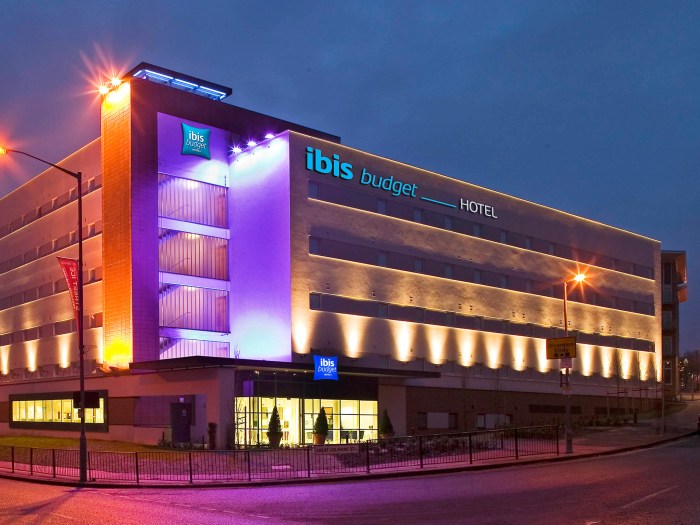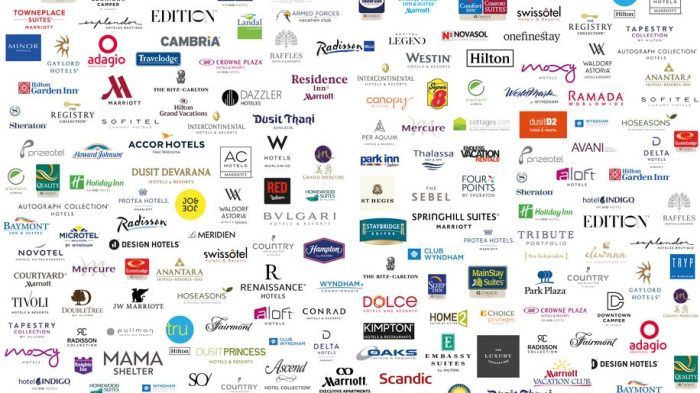In the ever-evolving hospitality landscape, budget hotel groups have emerged as a dominant force, catering to a growing segment of travelers seeking affordable and convenient accommodation. This comprehensive guide delves into the intricacies of budget hotel groups, exploring their market dynamics, competitive strategies, and operational practices.
Budget Hotel Group Market Overview

The global budget hotel market size was valued at USD 92.6 billion in 2021 and is projected to reach USD 143.2 billion by 2028, exhibiting a CAGR of 6.4% during the forecast period.
The growth of the budget hotel market is primarily attributed to the increasing demand for affordable accommodation options among budget-conscious travelers and the rising popularity of online travel booking platforms.
Target Audience
The target audience for budget hotels consists of individuals who prioritize affordability, convenience, and value for money. This includes:
- Budget travelers and backpackers
- Students and young professionals
- Families with limited travel budgets
- Business travelers seeking economical accommodation
Competitive Landscape Analysis
The budget hotel industry is a highly competitive market, with numerous players vying for market share. Understanding the competitive landscape is crucial for developing effective strategies and gaining a competitive edge.
Major competitors in the budget hotel industry include:
- Marriott International (Fairfield Inn & Suites, Courtyard by Marriott, SpringHill Suites)
- Hilton Worldwide (Hampton Inn, Homewood Suites, Hilton Garden Inn)
- InterContinental Hotels Group (Holiday Inn Express, Staybridge Suites, Candlewood Suites)
- AccorHotels (ibis, ibis Styles, Mercure)
- Wyndham Hotel Group (Super 8, Days Inn, Ramada)
Market Share
The market share of these major competitors varies depending on the region and market segment. However, Marriott International and Hilton Worldwide generally hold the largest market shares globally.
Strengths, Weaknesses, and Differentiation Strategies
Each competitor has its own strengths, weaknesses, and differentiation strategies.
- Marriott International: Strong brand recognition, extensive loyalty program, diverse portfolio of brands
- Hilton Worldwide: Global reach, strong presence in urban markets, focus on amenities and technology
- InterContinental Hotels Group: Value-driven offerings, strong presence in Europe and Asia, emphasis on sustainability
- AccorHotels: Wide range of brands catering to different segments, strong presence in Europe and emerging markets
- Wyndham Hotel Group: Extensive portfolio of economy and mid-scale brands, strong franchise network
Differentiation strategies include focusing on specific market segments (e.g., business travelers, families), offering unique amenities (e.g., free Wi-Fi, breakfast), and developing loyalty programs.
Pricing Strategies and Value Propositions
Pricing strategies vary depending on factors such as brand, location, and demand. Budget hotels typically offer competitive rates to attract price-sensitive customers.
Value propositions focus on providing guests with a comfortable and convenient stay at an affordable price. Key value propositions include:
- Clean and comfortable rooms
- Convenient locations
- Friendly and efficient service
- Competitive rates
Budget Hotel Group Customer Segmentation
Understanding the diverse needs and preferences of customers is crucial for developing targeted marketing strategies. By segmenting customers into distinct groups based on their demographics, travel needs, and preferences, Budget Hotel Group can effectively tailor its offerings and messaging to meet the specific requirements of each segment.
The following customer segments have been identified based on extensive market research and analysis:
Business Travelers
- Characteristics: Professionals traveling for work, typically requiring reliable Wi-Fi, convenient locations, and efficient check-in/check-out processes.
- Requirements: Comfortable accommodations, close proximity to business districts, complimentary breakfast, and flexible cancellation policies.
Leisure Travelers, Budget hotel group
- Characteristics: Families, couples, or individuals seeking relaxation and entertainment during their vacation.
- Requirements: Amenities such as swimming pools, fitness centers, and entertainment options; proximity to attractions and dining; and family-friendly accommodations.
Budget-Conscious Travelers
- Characteristics: Value-oriented individuals seeking affordable accommodations without sacrificing basic amenities.
- Requirements: Clean and comfortable rooms, convenient locations, and competitive rates; may be willing to compromise on certain amenities.
Budget Hotel Group Marketing Strategies

Effective marketing strategies are crucial for reaching target customers and driving bookings. Budget Hotel Group should focus on channels and tactics that align with its target audience and objectives.
Content marketing, social media campaigns, and search engine optimization () are essential components of a successful marketing strategy.
Content Marketing
Content marketing involves creating and distributing valuable, relevant, and consistent content to attract and retain a clearly defined audience. By providing informative and engaging content, Budget Hotel Group can establish itself as a thought leader and build trust with potential customers.
- Develop high-quality blog posts, articles, and videos that provide travel tips, destination guides, and hotel reviews.
- Create interactive content such as quizzes, polls, and contests to engage with followers.
- Establish a content calendar to ensure regular and consistent content creation.
Social Media Campaigns
Social media platforms offer a powerful way to connect with target customers and build brand awareness. Budget Hotel Group should focus on platforms where its target audience is active.
- Run targeted social media ads to reach specific demographics and interests.
- Create engaging content that resonates with followers and encourages interaction.
- Utilize social media listening tools to monitor brand mentions and customer feedback.
Search Engine Optimization ()
involves optimizing website content and structure to improve visibility and ranking in search engine results pages (SERPs). By implementing best practices, Budget Hotel Group can increase organic traffic to its website.
- Conduct research to identify relevant search terms.
- Optimize website content with targeted s and meta descriptions.
- Build backlinks from reputable websites to improve website authority.
Examples of Successful Marketing Initiatives
Several budget hotel groups have successfully implemented innovative marketing strategies to drive bookings and increase brand awareness.
- AccorHotels’ “Live Limitless” campaign: This global campaign focused on creating a strong emotional connection with travelers by highlighting the unique experiences and destinations offered by AccorHotels.
- Marriott International’s “Travel Brilliantly” campaign: This campaign leveraged the power of storytelling to showcase the transformative power of travel and the exceptional experiences offered by Marriott International.
Budget Hotel Group Operations and Management
Budget hotel groups operate with a focus on efficiency and cost-effectiveness. Their operational strategies aim to maximize revenue while minimizing expenses.
Revenue Management
Revenue management is crucial for budget hotel groups. It involves optimizing room rates based on demand, seasonality, and competition. By using revenue management systems, these groups can adjust prices dynamically to increase occupancy and revenue.
Property Maintenance
Maintaining properties to a high standard is essential for customer satisfaction. Budget hotel groups have standardized maintenance procedures to ensure consistent quality across all locations. They also invest in regular renovations and upgrades to keep properties modern and appealing.
Staff Training
Well-trained staff is vital for providing excellent guest experiences. Budget hotel groups emphasize staff training to ensure that employees are knowledgeable, efficient, and friendly. Training programs cover areas such as customer service, housekeeping, and revenue management.
Cost Optimization Strategies
Budget hotel groups implement various cost optimization strategies to maintain profitability. These include:
- Negotiating favorable rates with suppliers
- Optimizing energy consumption
- Implementing automated systems
- Streamlining operations
Budget Hotel Group Financial Analysis

Understanding the financial health of Budget Hotel Group is crucial for assessing its performance, profitability, and potential for growth. This analysis will delve into key financial metrics, ratios, and projections to provide a comprehensive overview of the group’s financial standing.
Revenue Analysis
Revenue is a key indicator of a hotel group’s success. Budget Hotel Group has consistently reported strong revenue growth, driven by increased occupancy rates and average daily rates (ADR). The group’s revenue streams include room rentals, food and beverage sales, and other ancillary services.
The group’s revenue performance can be attributed to its strategic expansion into new markets, effective revenue management practices, and customer loyalty programs. By optimizing its pricing and inventory, Budget Hotel Group has been able to maximize revenue generation while maintaining competitive rates.
Expense Analysis
Expenses are an essential consideration in evaluating a hotel group’s financial performance. Budget Hotel Group’s expenses can be categorized into fixed and variable costs. Fixed costs, such as rent and utilities, remain relatively stable, while variable costs, such as staff salaries and marketing expenses, fluctuate with revenue.
The group’s cost management strategies have focused on optimizing operational efficiency, negotiating favorable supplier contracts, and implementing energy-saving initiatives. These measures have helped to control expenses and improve profitability.
Profitability Analysis
Profitability is a measure of a hotel group’s financial success. Budget Hotel Group has maintained healthy profit margins, reflecting its ability to generate revenue while effectively managing expenses. The group’s profitability has been driven by a combination of factors, including revenue growth, cost control, and strategic investments.
Key profitability ratios, such as gross profit margin and net profit margin, provide insights into the group’s efficiency and cost structure. By analyzing these ratios, investors and analysts can assess the group’s financial performance and identify areas for improvement.
Financial Projections and Recommendations
Financial projections are essential for planning and making informed decisions about the future. Budget Hotel Group has developed financial projections based on historical data, market trends, and strategic initiatives. These projections provide guidance for growth, investment, and operational strategies.
Based on the financial analysis, several recommendations can be made to enhance Budget Hotel Group’s financial performance. These include:
- Continue expanding into new markets with high growth potential.
- Implement revenue management strategies to optimize pricing and inventory.
- Focus on cost control measures to improve profitability.
- Invest in technology and innovation to enhance operational efficiency.
- Monitor financial performance regularly and make adjustments as needed.
Budget Hotel Group Expansion Strategies
Expansion strategies play a pivotal role in the growth and success of any hotel group. By expanding their reach, budget hotel groups can tap into new markets, increase their brand presence, and maximize their revenue potential.
There are various expansion strategies that budget hotel groups can consider, each with its own set of challenges and opportunities.
Embarking on a frugal lifestyle can seem daunting, but with the right mindset and practical tips, it’s entirely achievable. Explore how to start being frugal and uncover simple yet effective strategies to reduce unnecessary expenses, save money, and achieve financial freedom.
Geographic Expansion
Geographic expansion involves expanding into new geographic regions, either domestically or internationally. This strategy allows hotel groups to access new customer bases and cater to the specific needs of different markets.
Challenges:
- Cultural and regulatory differences
- Competition from established players
- Logistical and operational complexities
Opportunities:
- Access to new customer segments
- Increased brand visibility
- Diversification of revenue streams
Brand Diversification
Brand diversification involves creating and operating multiple hotel brands under the same parent company. This strategy allows hotel groups to cater to different market segments and price points.
Challenges:
- Managing multiple brands effectively
- Ensuring brand consistency and differentiation
- Avoiding brand cannibalization
Opportunities:
- Expanded market reach
- Increased brand loyalty
- Improved revenue mix
Examples of Successful Expansion Strategies
AccorHotels:AccorHotels has successfully expanded globally through a combination of geographic expansion and brand diversification. The group operates over 5,300 hotels in 110 countries under various brands, including Ibis, Novotel, and Sofitel.
Marriott International:Marriott International has also adopted a successful expansion strategy, focusing on both geographic expansion and brand diversification. The group operates over 8,100 hotels in 139 countries under brands such as Marriott, Sheraton, and Ritz-Carlton.
Budget Hotel Group Technology Trends
The budget hotel industry is undergoing a digital transformation, with emerging technologies having a significant impact on operations, guest experiences, and marketing efforts. From artificial intelligence (AI) to mobile technology, these advancements are revolutionizing the way budget hotels connect with guests, manage their properties, and drive revenue.
One of the most notable technology trends in the budget hotel industry is the rise of AI. AI-powered solutions are being used to automate tasks, improve guest service, and personalize marketing campaigns. For example, AI-powered chatbots can provide 24/7 customer support, answering guest questions and resolving issues quickly and efficiently.
Additionally, AI can be used to analyze guest data to identify trends and patterns, which can help hotels tailor their services and offerings to meet the specific needs of their guests.
If you’re looking to save money and live a more frugal lifestyle, there are a few simple steps you can take. First, take a look at your budget and see where you’re spending the most money. Once you know where your money is going, you can start to make changes.
For example, you could cut back on unnecessary expenses, like eating out or buying new clothes. You could also try to negotiate lower bills for things like your phone or internet service. How to start being frugal
Mobile Technology
Mobile technology is another major trend shaping the budget hotel industry. With the increasing prevalence of smartphones and tablets, guests are increasingly using their mobile devices to book reservations, check in, and access hotel services. To meet this demand, budget hotels are investing in mobile-friendly websites and apps that make it easy for guests to interact with their properties on the go.
Additionally, mobile technology can be used to provide guests with real-time updates on their reservations, room availability, and hotel amenities.
Budget Hotel Group Sustainability Practices
Sustainability has become increasingly important in the budget hotel industry, as consumers become more environmentally conscious and seek businesses that align with their values. Budget hotel groups are responding by implementing various sustainability initiatives to reduce their environmental impact and appeal to this growing market.
Environmental Initiatives
Budget hotel groups are adopting various environmental initiatives to reduce their carbon footprint and minimize waste. These initiatives include:
- Using renewable energy sources, such as solar and wind power, to power their properties.
- Installing energy-efficient appliances and lighting systems to reduce energy consumption.
- Implementing water conservation measures, such as low-flow showerheads and faucets, to reduce water usage.
- Reducing waste by recycling and composting, and using biodegradable materials whenever possible.
Final Wrap-Up

As the budget hotel industry continues to evolve, it is essential for operators to stay abreast of emerging trends and customer preferences. By embracing innovation, optimizing operations, and implementing sustainable practices, budget hotel groups can position themselves for long-term success in this dynamic and competitive market.
Frequently Asked Questions
What are the key market trends driving the growth of budget hotel groups?
Rising travel demand, increasing budget consciousness among travelers, and the proliferation of online booking platforms are key factors contributing to the growth of budget hotel groups.
How do budget hotel groups differentiate themselves from traditional hotels?
Budget hotel groups typically offer lower room rates, streamlined amenities, and a focus on essential services, appealing to value-oriented travelers seeking a comfortable and affordable stay.
What are some of the challenges faced by budget hotel groups?
Maintaining profitability while providing a positive guest experience, managing operational costs, and competing with established hotel chains are among the key challenges faced by budget hotel groups.


